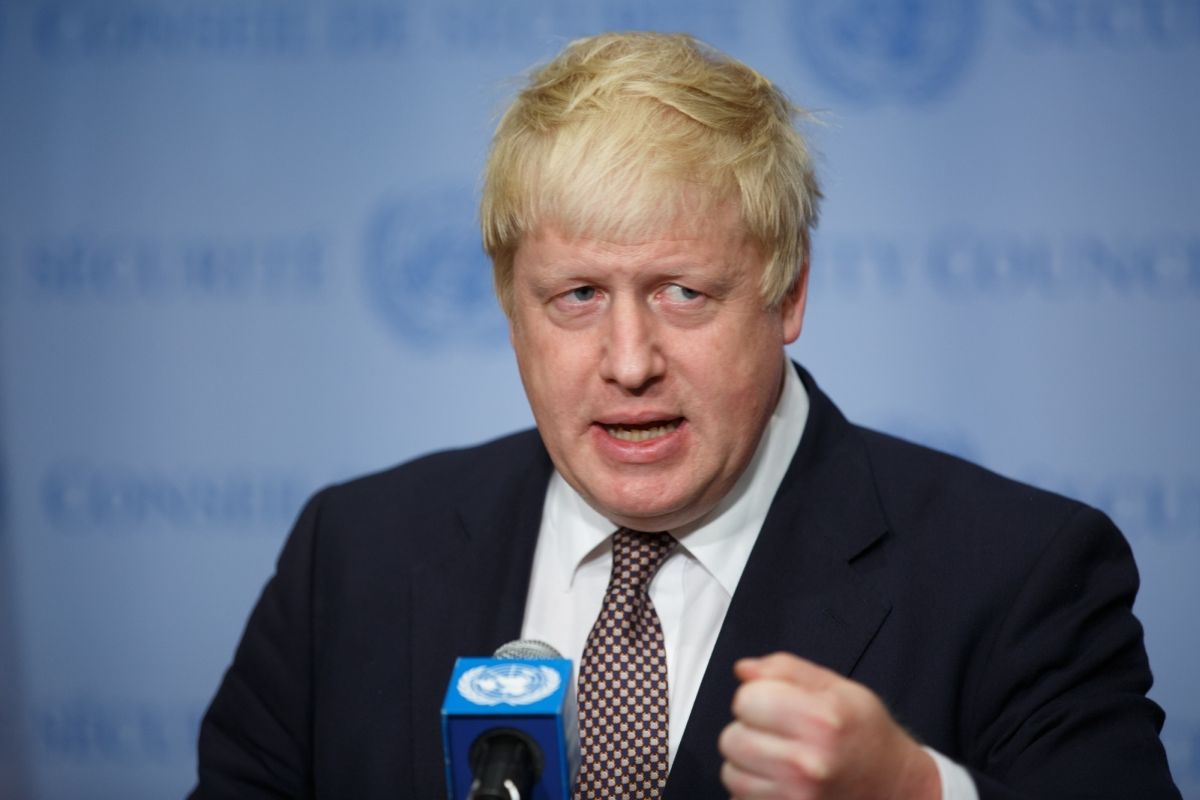EU leaders agree for new sanctions on Iran
European Union leaders agreed late on Wednesday on new sanctions targeting Iran for the direct attack on Israel.
The UK formally left the EU on January 31 and is now in a pre-agreed period of transition during which it is free to open up trade talks with countries around the world.

Boris Johnson. (File Photo: IANS)
UK Prime Minister Boris Johnson said on Monday that the word Brexit is “over” and receding behind the UK into history, in his first major speech since the country formally left the European Union.
The UK formally left the EU on January 31 and is now in a pre-agreed period of transition during which it is free to open up trade talks with countries around the world.
PM Johnson said that Britain’s exit from the 27-member economic bloc meant that it will not be accepting all its rules as it opens up negotiations with countries around the world.
Advertisement
“It’s not banned. It’s just over… it’s gone. I wouldn’t say it’s like the Big Bang or the Norman Conquest. It’s just that it’s receding into history behind us,” said Mr Johnson, when asked why he had not referred to the word “Brexit” even once during the course of the speech at the historic Old Royal Naval College in Greenwich, reflective of Britain’s trading history across its many colonies during the Empire.
“I won’t even mention the name of the controversy except to say that it begins with B. Receding in the past behind us. We have the opportunity, we have the newly recaptured powers, we know where we want to go, and that is out into the world,” Johnson added.
On Saturday, tens of thousands of pro-Europe protesters took to the streets in the Scottish capital of Edinburgh, marching against it.
In the June 2016 referendum, 62 per cent of the people in Scotland voted to remain.
Scotland’s First Minister Nicola Sturgeon has argued that Brexit has brought about a completely different scenario than justifies a fresh vote.
Protesters gathered near the regional parliament building, where the sound of bagpipes could be heard along with speeches from the organizers, pro-independence group Stand Up For Scotland.
On Thursday, the recent survey published by YouGov that revealed the secession support was in the lead for the first time since 2015 at 51 per cent, compared to 49 per cent opposing.
The reason for the increase is likely to be the number of Scots who support EU membership and would have changed their minds in 2014 if Scottish independence allowed the country to be part of the EU.
Brexit was originally scheduled for March 29, 2019, but was repeatedly delayed when MPs rejected a previous withdrawal agreement reached by the EU and former Prime Minister Theresa May.
Johnson was able to get his own deal through Parliament after winning the December 12, 2019, general election with a House of Commons majority of 80, on a pledge to “get Brexit done”.
Johnson was re-elected Prime Minister following his landslide victory in the December 12 general election, deemed as one the UK’s most decisive and crucial.
(With inputs from agency)
Advertisement